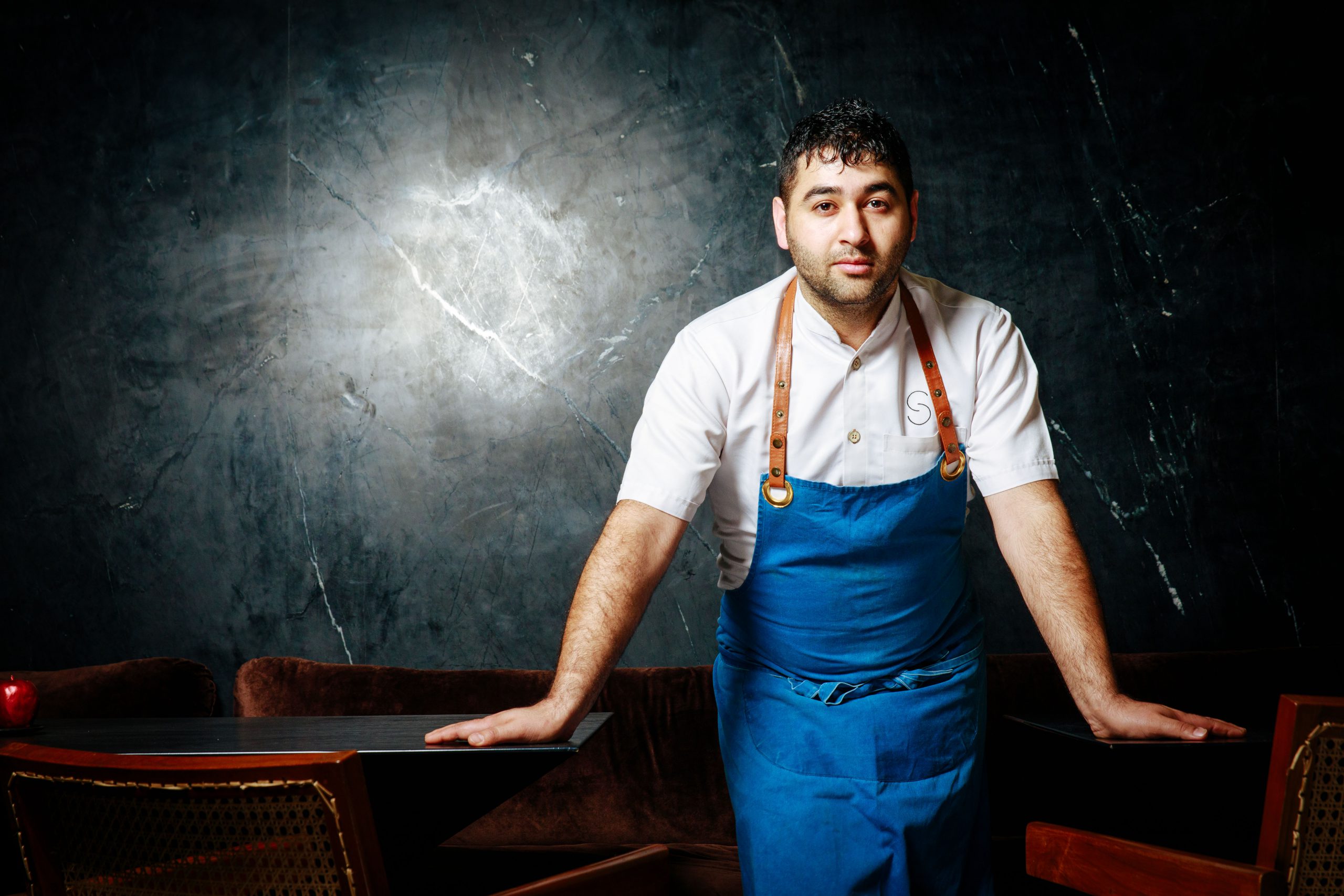
He had a dream, complemented well with a razor-sharp vision. He was ready to fail. What happened next was anything but the latter. Say hello to Chef Prateek Sadhu, the gent who is changing the way India dines, one meal at a time. September 2016 Masque opened doors to Mumbai, touted as the city’s “most ambitious” restaurant, it set out to fight perceptions and present a philosophy alien to the country’s F&B until then. Of Farm to Fork, seasonal produce, Zero Waste, no menus, and tasting portions – Executive Chef Sadhu along with CEO Aditi Duggar spearheaded a journey onto the road less taken, and in a little over a year have proven that it was worth taking – not solely for them, but for the patrons and the industry as a whole.
With his concept restaurant ringing in accolades from one and all, the Noma-trained chef inches closer towards his vision of putting Masque on the global map and narrating India’s story – which he ever-humbly states he has a long way to go for – as he constantly strives to “evolve and deliver experiences which eventually become your memory”. As he takes forward the cause of defying conventions and enthusing new convictions within the culinary landscape, we get talking to Chef Sadhu and unmask the man behind Masque.
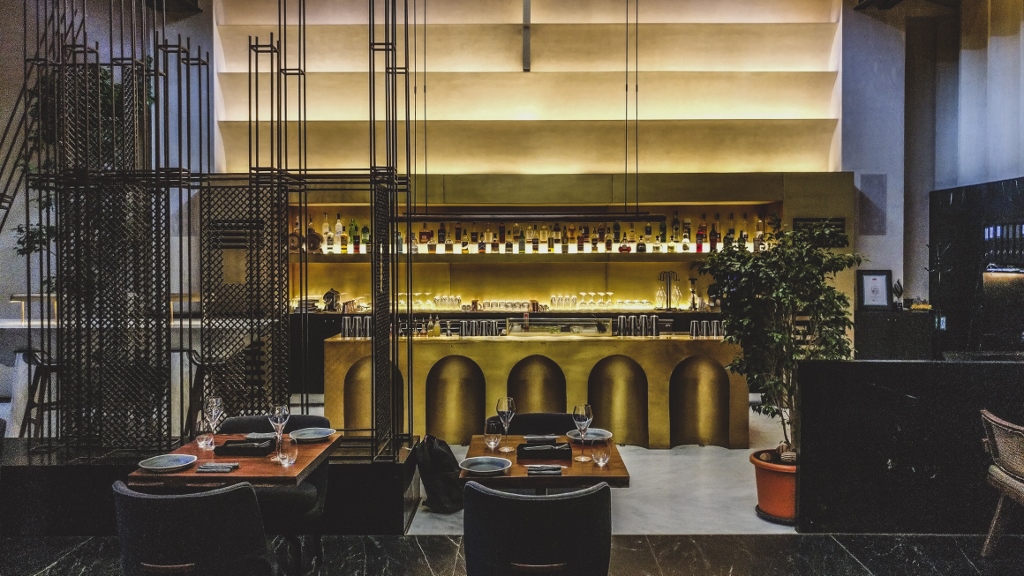
Masque restaurant; Image: Shashank Das
You’ve worked at some of the world’s top F&B establishments such as Noma, The French Laundry, The Pierre, Le Cirque Signature amongst others. How did these experiences impact your journey?
Every experience had something to contribute to my life, and to what we are doing at Masque today. The French Laundry was a different experience in terms of the kind of techniques, precision, and execution of ingredients I learnt. Noma was a game changer for me – their thought process, the way they do things, and the way they challenge themselves. They think in the opposite direction from the regular, challenging each and every set norm. They were also the pioneers of foraging, tapping into seasonal and micro seasonal produce, being local, and taking the region and keeping it at forefront. For example, presently everyone is using fermented this fermented that, but it was Noma who started the practice, They do it so subtly and so beautifully that one doesn’t even realise it! That was a major takeaway; the restaurant literally changed a lot of things for me.
All the restaurants I have worked with contributed to my life in terms of what I am today, my thought process, and the way I look at things.
What prompted you to open your own restaurant with Aditi Duggar?
I always wanted to open something of my own, a place where we can highlight India and Indian produce. Keeping that in mind, I obviously wanted to work with a lot of farmers and realise the dream of a real Farm to Fork restaurant. That was the main idea behind opening Masque, and when I met Aditi, we really clicked. We had the same vision and philosophy of why we wanted open restaurant; which was really important because we knew that a concept restaurant would not fetch us a lot of money. But we were determined to change the way India eats, looks at, and understands food – there was high risk in opening this restaurant – and, touchwood, things have gone really well, and here we are today.
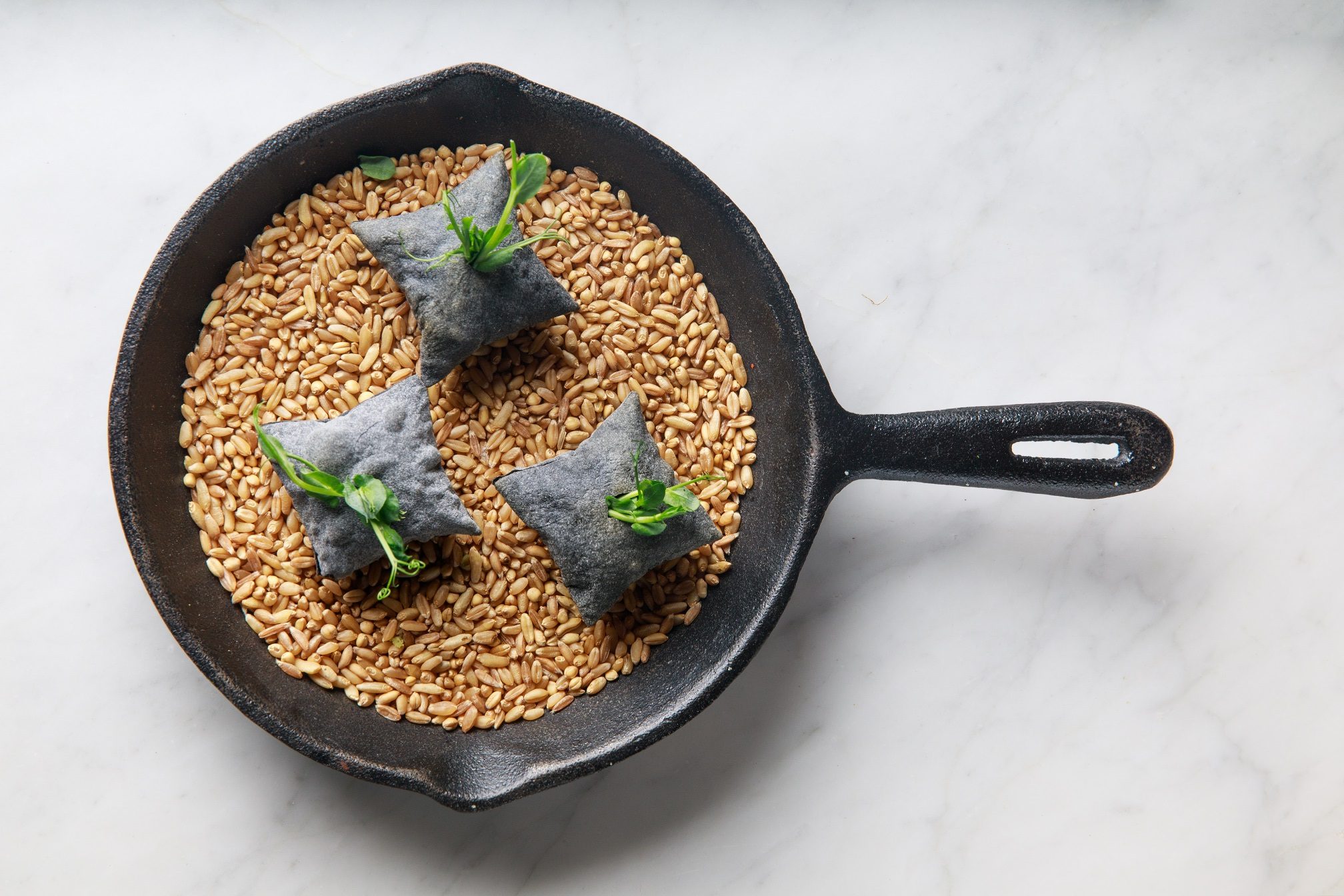
Avocado & Charcoal Pillows
Could you share how this interest in Farm to Fork and seasonal produce germinated, and how have you executed on your vision?
My grandfather was a farmer in Kashmir, and we used to grow everything, from wheat to rice and more, in our house. The interest stemmed from there, but what changed the way I looked at produce was my internship at Noma; after which I started questioning a lot of things about restaurant processes, and started looking at those from a very different perspective. Before that I was also exposed to and fascinated by the Farm to Fork process at The French Laundry, where they have their own farm and get to change the menu almost everyday.
When we were opening the restaurant, a lot of people and friends from the industry told us that it was a big risk and that we shouldn’t go through with it. They predicted we would have to shut down the restaurant in six months. But when you believe in something, you have to do it. It’s okay to fail sometimes. I think the biggest success stories definitely come from failures. We were mentally prepared that even if this venture fails, it would be fine, we won’t be dead. The belief in Masque, the belief in each other, and the belief in every person we hired tided us over.
It was one of the biggest challenges of my life to open this restaurant, but the only thing that kept us going was our belief, we believed and we still do that one day we will change the way India eats.

Another cause that resonates with Masque is zero food waste. Could you share how the restaurant inculcates the fight against food wastage in its functioning?
The first thing that came to our minds while opening a Farm to Fork restaurant was how to minimise food waste. When you’re only doing tasting menus and don’t have any menus to show at your restaurant, you restrict a lot of food wastage in terms of how many portions you’re cooking. Being reservation-centric certainly helps as well.
In our format we know exactly how much we need to order, so we don’t over order and don’t tend to waste. But in a kitchen under any format there will always be some wastage, so we follow a zero waste policy, and meet it 90-95 percent of the time. Any trimmings left over are dehydrated and converted into powders. For instance, right now we’re using a powder made out of carrot peels for our first course. When we make coffee, we make chips out of the remaining produce, we make chips out of beetroot trimmings as well, and these are served as courses and subset courses. Every byproduct is some kind of a product.
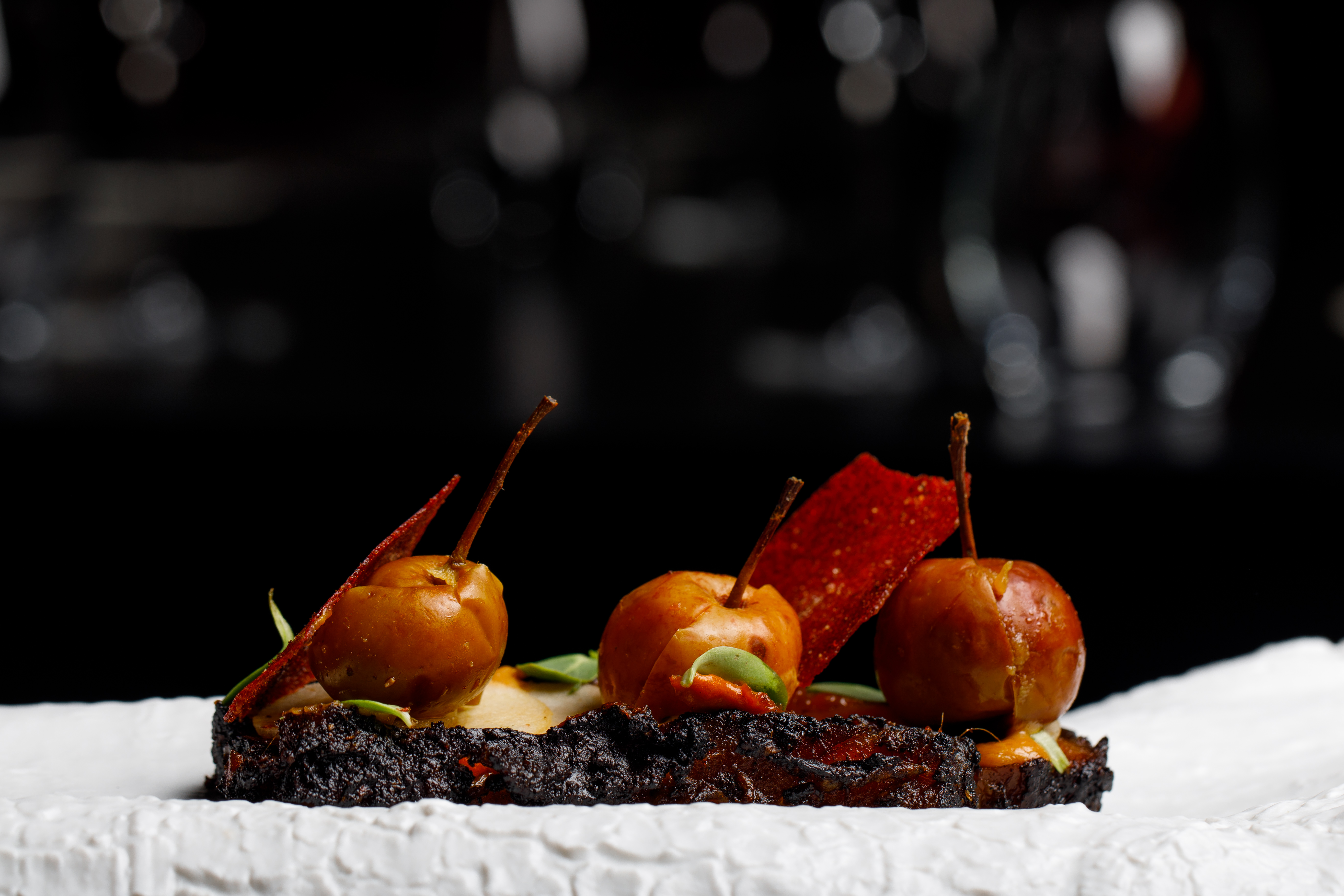
Pork Belly
From Ladakh to Kashmir to Rampur, you’ve travelled far and wide to scour produce. What experiences remain etched in your mind till date?
Ladakh was exceptional. We were there to get sea buckthorn berries, which only grow near the Pakistan border. You land in Leh and drive another six hours to reach the village of Turtuk. You then have to be mentally prepared to live in those small tents, without electricity, and procure special gloves from the army quarters as the berries are very thorny. It was one of the best experiences I’ve ever had; I can’t quite describe the rush!
[On his most recent trip was to Kashmir] Inspiration is everywhere, but it’s always good to go back to your roots to find it. I think that was my calling, tapping into the different seasons of Kashmir – it is the only place in India that sees all four seasons – to be inspired by what I ate as a child. Kashmir is more than just saffron or wazwan, from the 100 percent charcoal cooking to degchis (a kind of utensil), flavours of fennel and ginger to the bread culture – those are the aspects I want to capture, not the gushtaba which everybody is already doing.
You constantly change your menu, what are the challenges that come with it?
Indians are used to a certain kind of restaurant culture – one gets seated, is handed the menu, is served water – and there are many challenges as we move away from that. At Masque we don’t have any menus to show to guests, when guests arrive at the restaurant they have no idea what they’re eating. All that they see is a small philosophy. You have no idea what you’re going to eat, the first course happens inside the kitchen, we interact for a bit, then guests go back to their table to continue their meal. Of course, at the end of the meal service, we tell them what they’ve eaten that day. We work like we’re the best restaurant, so we have to bring forth that experience to the customer. It’s a very different experience, one that you won’t get anywhere else in India. The uniqueness of the experience is the reason people are now talking more about it. We also have a lot of repeat clientele who relish the ever-changing menu.
Starting out, we were fighting perceptions, the system, and also a small culture of dining out established over the years. We wanted to do something completely different. When one sets out to do that, people, at the outset, are not comfortable with it. It takes time for them to warm up to the change before they can see that it makes sense. We’ve grown through the years, we know Masque as an ideology and philosophy will take time, and we’re ready for the long haul.
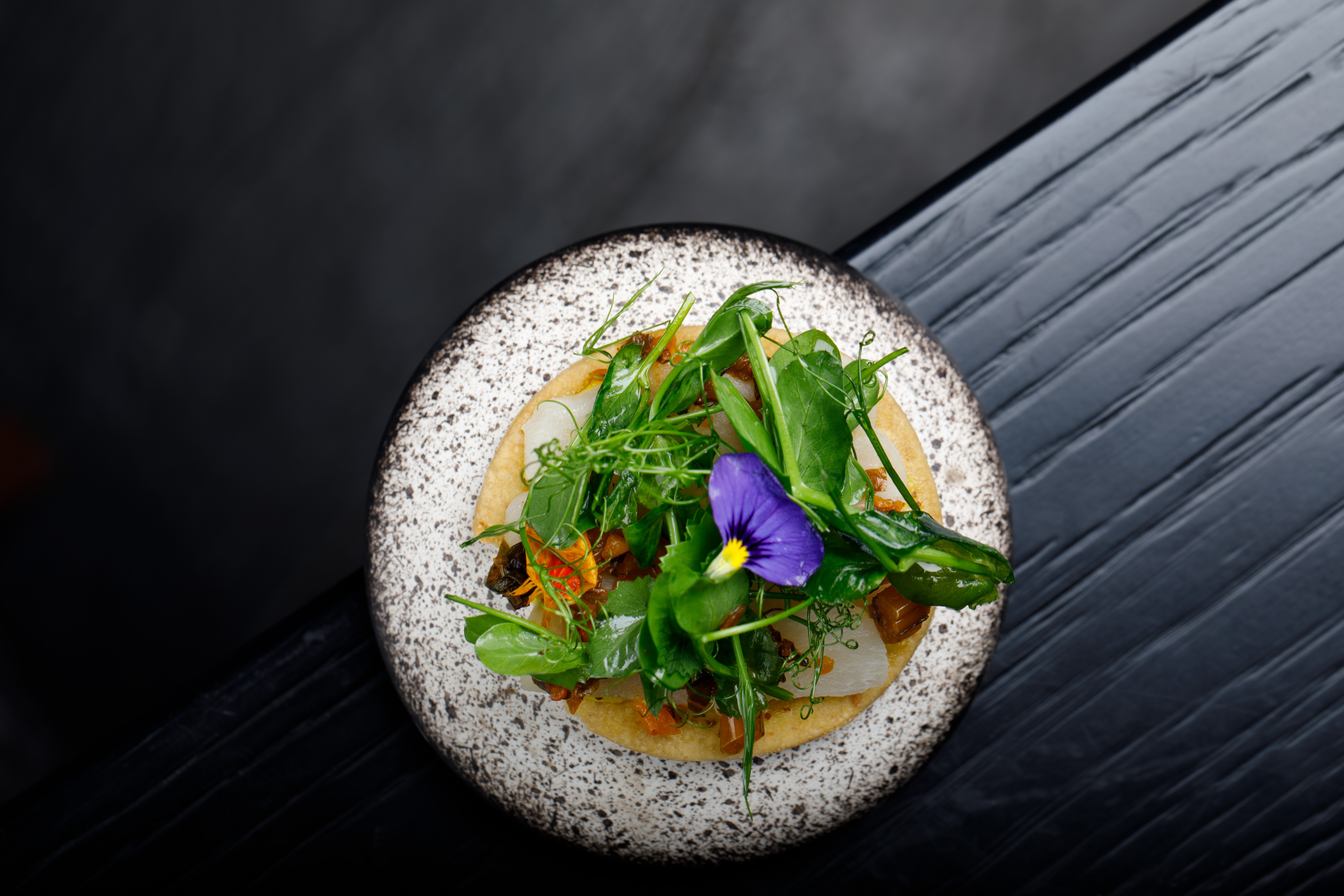
Lobster Toast
Tell us more about the ori-gin bar at the Masque?
Gin was coming up in a big way in the last three years, and now it has arrived. I personally love gin and used to have a lot of gin & tonics back in the US, that’s also where the idea primarily comes from. When we were opening Masque, everyone was going gaga over G&Ts, so we decided to do something different with it by trying our own infusions and concoctions. It has worked out well and now all our signature cocktails are gin based. The philosophy at the bar is identical to the philosophy in the kitchen – locally-sourced and season-specific ingredients are used to craft our drinks.
From the collaborative dinner at Moscow Delhi (Moscow) to cooking at Edinburgh Food Studio, and Masque’s recent popup at The Lodhi (New Delhi), do you think collaborative kitchens are the way forward in the world of gastronomy?
We live in a very different world now, especially when it comes to the culinary arts. It is the age of social media, one in which everybody is connected. I believe collaborating with different chefs also tends to give an insight into their minds, into how they work, and paves the way for being inspired by each others’ ideas – it’s an amazing thing to do and should be the way forward.
How has your journey with Masque been till date?
The entire journey has been really insightful. A year and a half ago, we were setting out to build a restaurant which had never been done before, at least in India; we were on our own, trying to chase our dream and believing what we’re doing was right. We were just out there to take Indian ingredients and make those into a huge success with Masque. We want tell the world that look, there are restaurants in India which are doing incredible work, and make it a global phenomena. It’s India’s story that we’re telling; we want to make India proud.
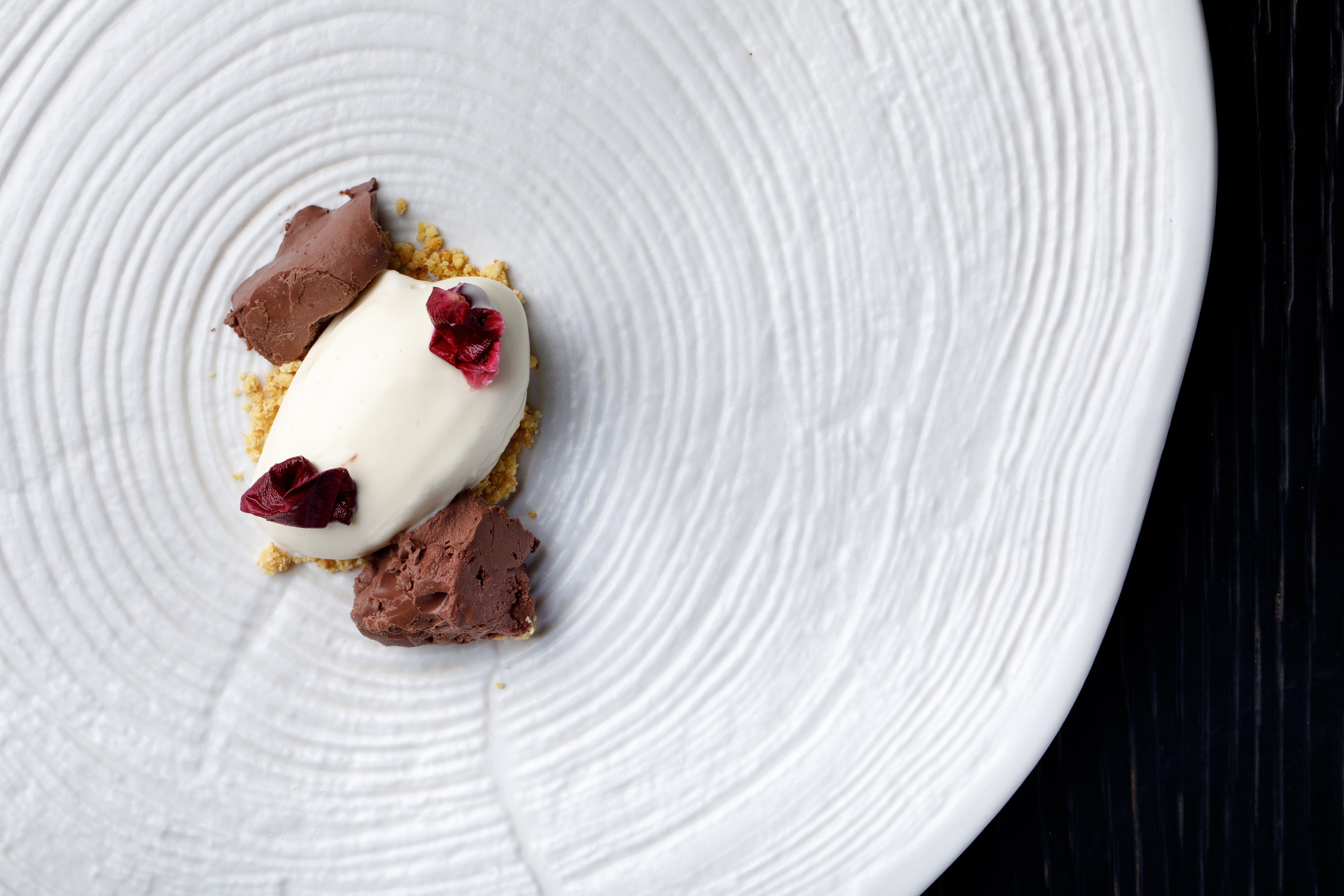
Rice Ice Cream, Aerated Pondi Chocolate Mousse
With that thought in place, we rev up the signature DSSC Rapid Fire before Chef Prateek goes on to champion the cause of the stove for yet another round.
Your favourite restaurant in India?
Ahdoos, Kashmir.
Your most-loved street food?
Chaat and Chhole Bhature in Delhi are to die for, Panipuri in Kolkata and Delhi, Pao Bhaji, Vada Pao, and Bhaji Pao in Bombay, roadside Chicken 65 and dosas in the South.
One motto you live by?
Failures are important. We take ourselves very seriously in life, it’s okay to fail. Only failure can help you realise what success is. We’re too afraid of failure and that’s why we’re so mediocre; we always follow the balanced path in life, not the extreme. When you fail you get to know exactly who you are and what you need to do in order to succeed.
Your go-to comfort food?
My mum’s Rogan Josh and rice.
What do you love most about your team at Masque?
They are everything for me. They’re the most passionate, innovative, and intriguing team that I could ever have. I can’t be more thankful, they are the true reason for the success story that Masque is today!

